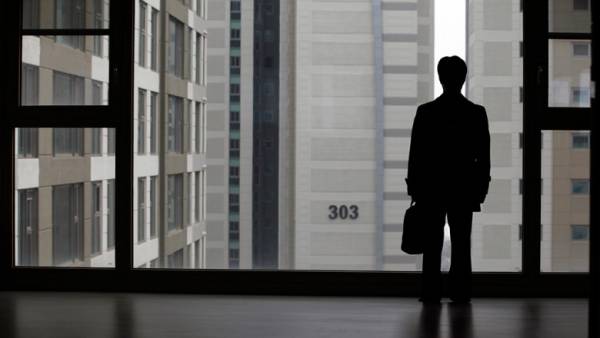“Work becomes a privilege”
The sociologist Domenico De Masi — the labour market in the XXI century. Interviewed By Helen Pushkarskaya.

The Russians, spontaneously performativas 1 may labour day in celebration of spring and of the rest probably guessed new world trend. Says sociologist Domenico De Masi, a time when labor will become a privilege of the minority.
How to treat this perspective, the majority of which will be doomed to idleness? Who is this sloth will pay? And what new social storms threatened new formula that rapidly develops advanced part of mankind? “Spark” has talked on these topics, Professor Emeritus of the University of Rome “Sapienza”, which in Italy is considered a theorist of “post-politics”.
— You say, Professor, that in the future we will have less work and more rest. Now explain how to treat this? We should be happy or alarmed?
— You just need to get used to the idea that work in the world will be less and less, and the character of it will change dramatically. Let me remind you: in the middle of the XIX century, when Marx wrote his Capital, in Manchester (where his associate Engels was a factory.— “On”) 96 per cent of the workers were workers. In the world today is only 30 percent. In contrast, mental activities occupied 70 percent of the working population, and about half earn creative work — you can tell, creativity.
The essence of change can also be formulated differently.
Watch: two centuries ago, machines replaced workers, in our age, the computer selects jobs from employees, and artificial intelligence has entered the competition with the representatives of creative professions.
Or we are producing more goods and services with lower labor costs.
How to treat this? In my opinion, this is not a threat but a blessing. About the situation that we’re facing, mankind has always dreamed of. To expend less effort on production and related activities, and were invented first conveyor, then the automobile, telephone, computer. This is the dialectic.
More. I think, to assert that man was created for labor, is also incorrect.
Man is born to be creative and reproduction of their own kind. Here are two noble mission of the human being.
— But the work has always been considered a necessary component of self-realization, self-awareness, finally, dignity. For many, it is the meaning of life.
— I would formulate it differently: the work gives the possibility of earning, socialization, and implementation. And happiness, if there is all three.
But are you sure that the cleaner, the operator of the call center or the handyman get satisfaction from a profession that pays very little money, despite the fact that at any moment they can be fired?
Don’t forget: the number of people involved in the work, satisfying, and even more fun will be reduced. Look at how many University graduates can not find work on a specialty now. There is a slowing of social mobility, leaching of the globalization of small businesses, artisans. In the future most workers will not do what you would like. But even more will be those who lose this possibility…
— You want to say that the efforts of the state to combat unemployment, all of these labour market reforms — a futile exercise?
— What kind of fight against unemployment may be when everywhere there is a trend to intensify, and unpaid overtime — has long been the rule, not the exception? We have in Italy, for example, 2 million managers and employees work every day two hours more than normal. But these watches could give 500 thousand jobs…
Instead, to reduce working hours to redistribute the volume of work between a large number of people.
First and foremost, to help reach the youth market, which is increasingly difficult to penetrate the elderly who want to keep their jobs.
Of course, it’s not all the contradictions there are also contradictions between the public and private sector, locals and immigrants and so on.
Understand, this is not my idea. Even Keynes (the economist John Maynard Keynes, 1883-1946, one of the founders of macroeconomics as an independent science.— “On”) predicted that in 2030 people will work 15 hours per week. By the way, Germany (to a certain extent solved the problem of youth unemployment, encouraging part-time employment and shorter working hours.— “O”) moves in this direction. There average working time is 1400 hours per year, whereas the average Italian works 1500 hours.
But the idea of redistribution of working time is progressing and in Italy, but while in the framework of individual enterprises. So, for example, practiced a so-called ethical Bank time is the employee who needs time off, can “contribute” to the Bank their working hours, and those who need part time job, these hours can take advantage.
The main problem here is to correctly distribute the benefits, including work that is really right in front of becomes a privilege.
Another thing is that it is still, as public goods, all is not enough and necessity in the distribution of both. The Communists at the time, learned how to distribute work and wealth, but did not know how to create it. And we know how to produce but to distribute has not yet learned.
— Are you sure that the rich will voluntarily want to share? In Russia, I remember, the idea of socialist distribution was preceded by a revolution.